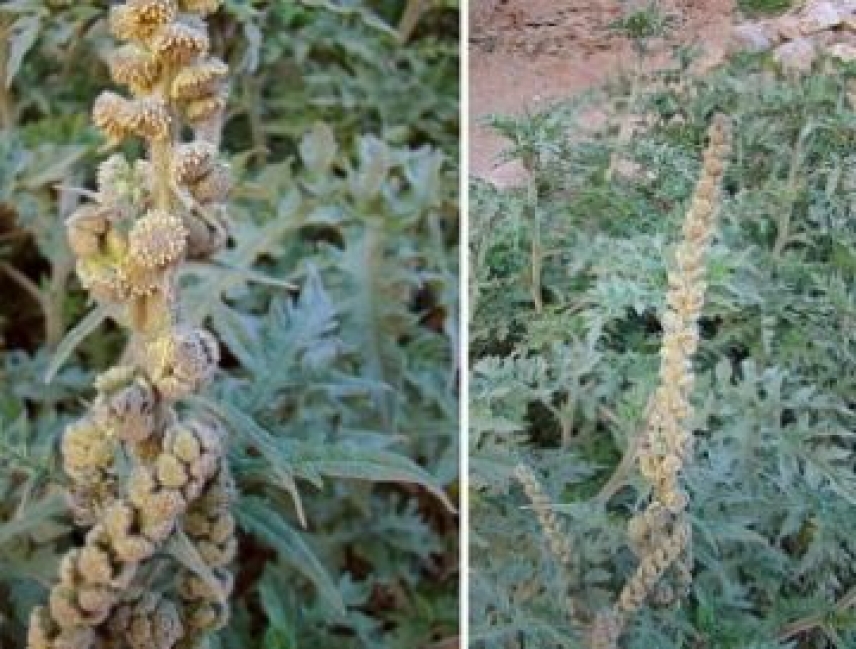G.C.-E.L.
Isolating and testing effectiveness of Damsin and Coronopilin in inhibiting tumor cells

G.C.-E.L.
Isolating and testing effectiveness of Damsin and Coronopilin in inhibiting tumor cells
Ambrosia was the drink of the Greek gods, which grants them immortality . Ambrosia arborescens was the name chosen by the Swedish naturalist Carl Linnaeus when he documented one of the plants brought from America, used in Andean traditional medicine. Ambrosia arborescens is now the plant that could hold the key to a new cancer drug , according to results published in the journal Anticancer Research by Eduardo Muñoz and Marco A. Calzado, researchers at the University of Córdoba and the Maimonides Institute for Biomedical Research (IMIBIC).
Specifically, this new research has isolated and studied two components present in the bush: Damsin and Coronopilin. They were tested in laboratory cell cultures and shown to be effective inhibitors of cancer cell proliferation and of activation of key inflammatory process factors associated with cancer.
These results open new lines of applied research that could use both components in the development of new cancer drugs.
All results are available on http://ar.iiarjournals.org/content/33/9/3799.long
Ambrosia was the drink of the Greek gods, which grants them immortality.
Ambrosia arborescens was the name chosen by the Swedish naturalist Carl Linnaeus when he documented one of the plants brought from America, used in Andean traditional medicine. Ambrosia arborescens could now hold the key to a new cancer drug, according to results published in the journal Anticancer Research by Eduardo Muñoz and Marco A. Calzado, researchers at the University of Córdoba and the Maimonides Institute for Biomedical Research (IMIBIC).
Specifically, this new research has isolated and studied two components present in the bush: Damsin and Coronopilin. They were tested in laboratory cell cultures and shown to be effective inhibitors of cancer cell proliferation and activation of key inflammatory process factors associated with cancer. These results open new lines of applied research that could use both components in the development of new cancer drugs.
All results are available on http://ar.iiarjournals.org/content/33/9/3799.long



